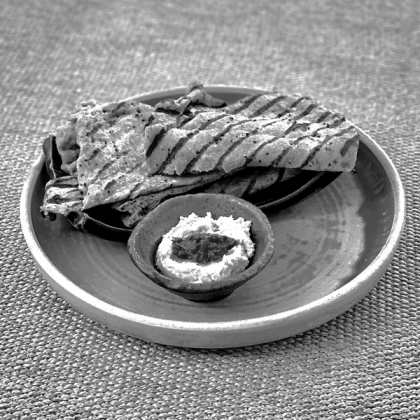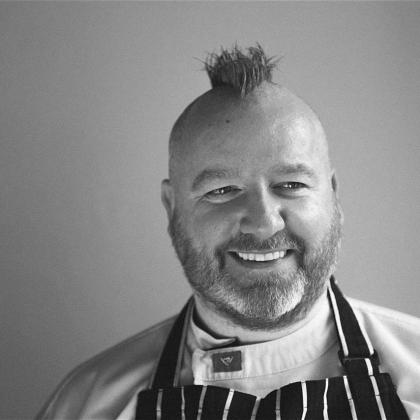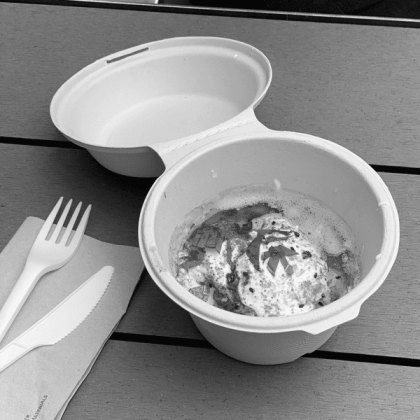The images were shocking, depressing, post-apocalyptic.
A desecrated landscape; enough food litter and packaging detritus to fill a week of WALL-E’s clean-up time; still-smouldering fires; abandoned habitats.
Apocalypse Now? No, just the remains of Oxegen 2008, a world of deserted and abandoned Gelerts, San Marinos, Topazs, Akashis and Iglus.
The snail may travel with his house on his back, but Oxegen festivalgoers can’t be bothered to pack up their pricey tents and bring them back home for another day, another weekend.
Bloody kids, you think. So this is the Eco-generation in action? Save the world. But not County Kildare.
It’s always easy to blame the kids and, usually, it’s the wrong thing to do. Kids learn from their parents, and the parents of today’s Oxegen revellers are the generation that throw away loads of stuff every day. Most significantly, however, what they throw away is food.
In the U.K., for instance, a third of all food purchased is chucked away uneaten. 4 million tones of food each year. One billion sterling in value. A value in each household of £420, some €530, or more than a tenner a week.
In Ireland and the U.K., lured by the BOGOF bait – Buy-One-Get-One-Free – shoppers tear around supermarkets looking to save a few cent, lured by promises that Megamarket X is cheaper than Megamarket Y.
Having saved a few euro, at the cost of exhausting time and effort, they get the food home, keep it for a few days, let it get past a meaningless sell-by date, and then throw it into the bin.
What is missing in this tragic food pantomime is not prudence, or thoughtfulness, or a sense of economy. It is actually rather more profound than all those necessary virtues. For what is missing is respect. Respect for the food itself, for the energy both human and natural that created it, and for the planet that has to suffer the waste being dumped on land-fill sites where it generates methane as it decomposes.
And such a lack of respect for food implies a lack of respect for ourselves, our bodies, and our health. Food is not just fuel for physical sustenance. Good food impacts on our mental well-being as much as it does on our physical well-being. What we respect, we value.
The Aztecs had such reverence for corn that they would rebuke themselves if they failed to pick up a dropped kernel of maize: “Our Sustenance suffereth, it lieth weeping”, Friar Sahagun recorded the Aztecs as saying four centuries ago. “If we should not gather it up, it would accuse us before our Lord”.
I like that idea of the corn as possessing human qualities – lying weeping because it has been dropped to the ground, like a fallen child – and also the fact that the corn has the human and spiritual quality of rebuke: it possesses a moral compass.
The Aztecs had no genetically modified maize to sow by tractor or combine, but they knew the power of sunshine and photosynthesis, and they knew the value of human toil when harvest time came.
Today, of course, any manner of agricultural reality fades further and further away from the lives of more and more people.
We only see farmers when they are protesting, not when they are working. Farming is a matter of WTO economics, not respect for the land and its bounty. Food is commodity, and commodity produces money. It doesn’t deal in reverence or respect. Drop a carrot on the floor and you will not be able to picture it as something that could suffer from such lack of respect. It’s just a carrot.
How did we get here? How did a generation who at least started out as Mass-attenders forget that it was simple bread and wine – agricultural produce – that became the body and blood of the Christian Jesus? Did our moral compass, when it comes to respecting food, drown in EEC wine lakes, and die of frostbite at the summits of butter and beef mountains in the late 1980’s?
“There is a communion of more than our bodies when bread is broken and wine drunk”, was how the late, great food writer MFK Fisher explained the significance of eating well and respecting what we eat and drink, in her book, “The Gastronomical Me”, published back in 1943.
But an even more ancient quotation from the Irish best expresses the profound respect our food deserves, and which it should engender in us.
When the first new potatoes were dug and cooked and served, they used to say: “Go mbeirimíd beo ar an am seo arís”:
“May we be alive at this time again”.
It might be a good line to teach your teenagers, to bid farewell to their friends at the end of Oxegen 2009, as you also show them how to quickly pack up a tent and bring home their food waste.
A desecrated landscape; enough food litter and packaging detritus to fill a week of WALL-E’s clean-up time; still-smouldering fires; abandoned habitats.
Apocalypse Now? No, just the remains of Oxegen 2008, a world of deserted and abandoned Gelerts, San Marinos, Topazs, Akashis and Iglus.
The snail may travel with his house on his back, but Oxegen festivalgoers can’t be bothered to pack up their pricey tents and bring them back home for another day, another weekend.
Bloody kids, you think. So this is the Eco-generation in action? Save the world. But not County Kildare.
It’s always easy to blame the kids and, usually, it’s the wrong thing to do. Kids learn from their parents, and the parents of today’s Oxegen revellers are the generation that throw away loads of stuff every day. Most significantly, however, what they throw away is food.
In the U.K., for instance, a third of all food purchased is chucked away uneaten. 4 million tones of food each year. One billion sterling in value. A value in each household of £420, some €530, or more than a tenner a week.
In Ireland and the U.K., lured by the BOGOF bait – Buy-One-Get-One-Free – shoppers tear around supermarkets looking to save a few cent, lured by promises that Megamarket X is cheaper than Megamarket Y.
Having saved a few euro, at the cost of exhausting time and effort, they get the food home, keep it for a few days, let it get past a meaningless sell-by date, and then throw it into the bin.
What is missing in this tragic food pantomime is not prudence, or thoughtfulness, or a sense of economy. It is actually rather more profound than all those necessary virtues. For what is missing is respect. Respect for the food itself, for the energy both human and natural that created it, and for the planet that has to suffer the waste being dumped on land-fill sites where it generates methane as it decomposes.
And such a lack of respect for food implies a lack of respect for ourselves, our bodies, and our health. Food is not just fuel for physical sustenance. Good food impacts on our mental well-being as much as it does on our physical well-being. What we respect, we value.
The Aztecs had such reverence for corn that they would rebuke themselves if they failed to pick up a dropped kernel of maize: “Our Sustenance suffereth, it lieth weeping”, Friar Sahagun recorded the Aztecs as saying four centuries ago. “If we should not gather it up, it would accuse us before our Lord”.
I like that idea of the corn as possessing human qualities – lying weeping because it has been dropped to the ground, like a fallen child – and also the fact that the corn has the human and spiritual quality of rebuke: it possesses a moral compass.
The Aztecs had no genetically modified maize to sow by tractor or combine, but they knew the power of sunshine and photosynthesis, and they knew the value of human toil when harvest time came.
Today, of course, any manner of agricultural reality fades further and further away from the lives of more and more people.
We only see farmers when they are protesting, not when they are working. Farming is a matter of WTO economics, not respect for the land and its bounty. Food is commodity, and commodity produces money. It doesn’t deal in reverence or respect. Drop a carrot on the floor and you will not be able to picture it as something that could suffer from such lack of respect. It’s just a carrot.
How did we get here? How did a generation who at least started out as Mass-attenders forget that it was simple bread and wine – agricultural produce – that became the body and blood of the Christian Jesus? Did our moral compass, when it comes to respecting food, drown in EEC wine lakes, and die of frostbite at the summits of butter and beef mountains in the late 1980’s?
“There is a communion of more than our bodies when bread is broken and wine drunk”, was how the late, great food writer MFK Fisher explained the significance of eating well and respecting what we eat and drink, in her book, “The Gastronomical Me”, published back in 1943.
But an even more ancient quotation from the Irish best expresses the profound respect our food deserves, and which it should engender in us.
When the first new potatoes were dug and cooked and served, they used to say: “Go mbeirimíd beo ar an am seo arís”:
“May we be alive at this time again”.
It might be a good line to teach your teenagers, to bid farewell to their friends at the end of Oxegen 2009, as you also show them how to quickly pack up a tent and bring home their food waste.






